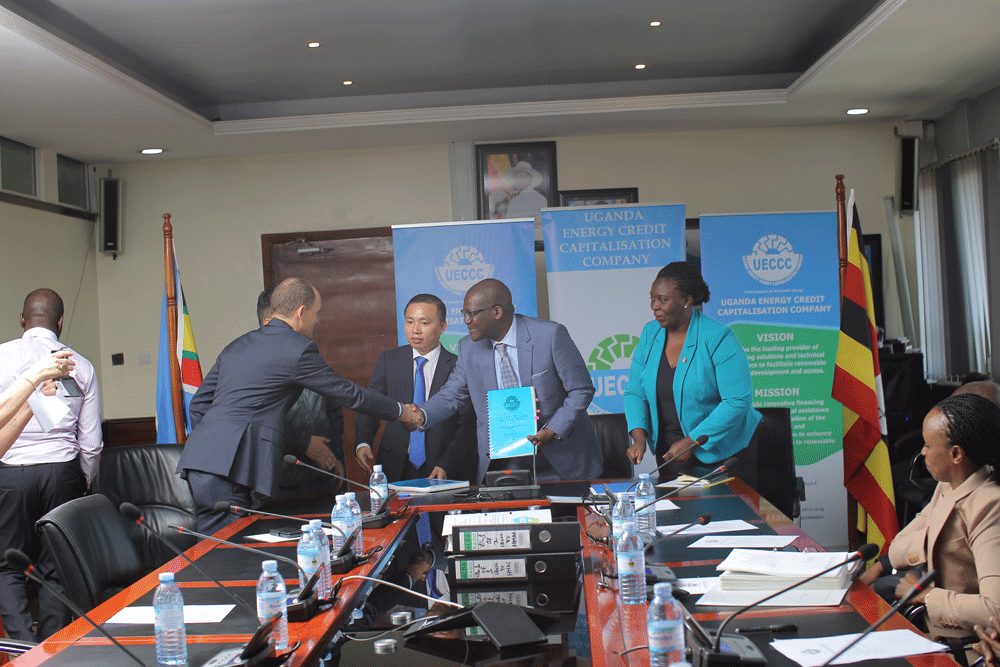Prime
Shs53.3b contracts for 6.7MW electricity project signed

Mr Roy Nyamutale Baguma (second right) and Joost Van Ettro shake hands after signing the contracts in Kampala on Wednesday. Photo / Courtesy
What you need to know:
- The first phase of the project is expected to be completed within 24 months
The Uganda Energy Credit Capitalisation Company (UECCC) has signed civil and hydromechanical contracts for the ORIO mini hydropower project.
The signing, which was presided over by Ms Irene Pauline Bateebe, the Energy Ministry permanent secretary in Kampala Wednesday, kick-starts the construction of nine mini-hydropower plants with a total generation capacity of 6.7 megawatts and develop a local distribution network spanning 288 kilometres.
Ms Bateebe said the project was key in enhancing energy access, noting that government has an ambitious target of increasing electricity access from 19 percent to 80 percent by 2040.
The ORIO project is expected to connect about 71,081 households and 2,300 small and medium enterprises across Kasese, Bushenyi, and Hoima districts, which Ms Bateebe said will ensure the provision of stable and reliable power for rural electrification and address challenges of long-distance power transmission.
Mr Roy Nyamutale Baguma, the UECCC managing director, said the project will be implemented by HNAC Technology, a publicly listed company with 30 years of experience in water conservancy, electric power, and environmental protection solutions from China, which will handle civil and hydromechanical works, while Ossberger GmbH from Germany will design, manufacture, supply, and install the electromechanical components.
Mr Chu Ao Qi, who represented HNAC, reaffirmed the company’s commitment to deliver quality works in the first phase of the project.
The project is funded through a €13.1 m (Shs53.3b) grant between the governments of the Netherlands and Uganda.
Mr Joost Van Ettro, the deputy ambassador of the Kingdom of the Netherlands to Uganda, said energy is a key enabler, without which, communities cannot reach their full potential.
“We are looking forward to the next phase; the groundbreaking and the actual realisation of all nine mini-hub projects,” he said, emphasising Netherlands' alignment with Uganda’s National Development Plan III, which seeks to increase average household incomes and improve the quality of life over the next 30 years.
The ORIO mini hydropower project seeks to provide reliable energy access, enhance household incomes, and support regional transformation by aligning with UN’s agenda to ensure universal access to affordable energy by 2030.
The first phase of the project is expected to be completed within 24 months.
Ms Bateebe urged contractors to focus on timely delivery, noting that the project should be delivered within set timelines to enable government achieve targeted electricity access for all by 2030.
The rollout of the ORIO mini hydropower project is a critical step toward achieving energy goals and improving the living standards of its citizens.




